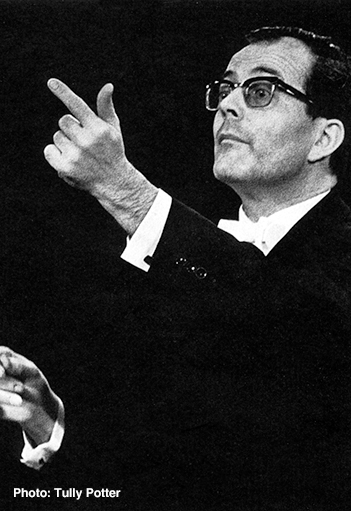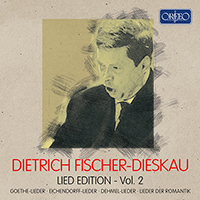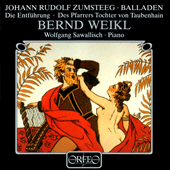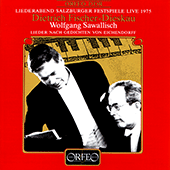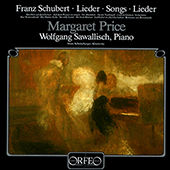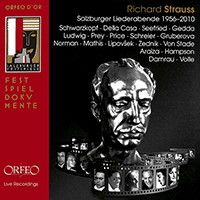Wolfgang Sawallisch
Sawallisch began to learn the piano at the age of five, studying theory and composition while still at school and subsequently becoming a pupil of Ruoff, Haas, and Sache in Munich, prior to joining the German army in 1942; following the end of World War II he completed his musical studies at the Munich High School for Music. He then joined the Augsburg Opera in 1947 as a répétiteur, and with the violinist Gerhard Seitz won the first prize for duo performances at the Geneva International Music Competition in 1949. Having made his début as a conductor with Humperdinck’s Hänsel und Gretel in 1950 at Augsburg, he shortly afterwards became first conductor there. He was Germany’s youngest general music director on his appointment to head the Aachen Opera in 1953, and was later recruited to the same post at Wiesbaden in 1958 and at Cologne in 1960. He also taught conducting at the Cologne Conservatory. Sawallisch conducted annually at the Bayreuth Festival from 1957 to 1961, opening the 1957 Festival with Tristan und Isolde. In the same year he made his English débuts as both an accompanist, with the soprano Elisabeth Schwarzkopf, and as a conductor, with her husband Walter Legge’s Philharmonia Orchestra. Legge also engaged him to make several important recordings, notably the first commercial release of Richard Strauss’s final opera, Capriccio.
In 1960, in addition to his appointment at Cologne, Sawallisch became chief conductor of the Vienna Symphony Orchestra, and in 1961 of the Hamburg State Philharmonic Orchestra, retaining both positions until 1970 and touring America successfully with the Vienna Symphony in 1964. He succeeded Paul Kletzki as chief conductor of the Suisse Romande Orchestra in 1972, having been appointed the previous year as chief conductor of the Bavarian State Opera. He led this company on another successful tour, to London in 1972, and remained at its head until 1992, making numerous recordings, notably of lesser-known works by Wagner and Richard Strauss.
In 1990, Sawallisch was named as the chief conductor of the Philadelphia Orchestra in succession to Riccardo Muti, taking up this appointment in 1993. He relinquished the position in 2003 following the death of his wife, but continued to appear with the orchestra as a most-welcome guest. In addition to his permanent posts, Sawallisch had an active career as a guest conductor with the world’s leading orchestras, including the Amsterdam Concertgebouw, London Philharmonic, Vienna Philharmonic, and the Orchestre National de Radio France in Paris, and conducted regularly at La Scala, Milan. He was especially popular in Japan, where he appeared regularly with the NHK Symphony Orchestra. Sawallisch was a conservative, ‘no-nonsense’ conductor whose platform style was economical and clear. His interpretations were grounded firmly on a complete understanding of the Austro-German school of composers, of which he was a pre-eminent interpreter.
His discography is large and distinguished, and his recordings of Mozart, Beethoven, Schubert, Schumann, Mendelssohn, Brahms, Wagner, Bruckner, Dvořák, Richard Strauss and Hindemith may be recommended without hesitation in both studio and live incarnations.
© Naxos Rights International Ltd. — David Patmore (A–Z of Conductors, Naxos 8.558087–90).







